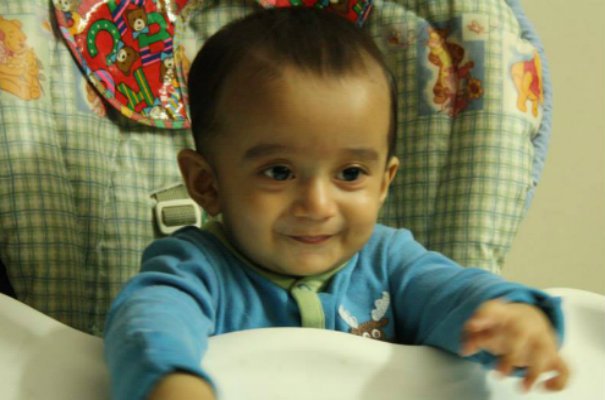-
Tips for becoming a good boxer - November 6, 2020
-
7 expert tips for making your hens night a memorable one - November 6, 2020
-
5 reasons to host your Christmas party on a cruise boat - November 6, 2020
-
What to do when you’re charged with a crime - November 6, 2020
-
Should you get one or multiple dogs? Here’s all you need to know - November 3, 2020
-
A Guide: How to Build Your Very Own Magic Mirror - February 14, 2019
-
Our Top Inspirational Baseball Stars - November 24, 2018
-
Five Tech Tools That Will Help You Turn Your Blog into a Business - November 24, 2018
-
How to Indulge on Vacation without Expanding Your Waist - November 9, 2018
-
5 Strategies for Businesses to Appeal to Today’s Increasingly Mobile-Crazed Customers - November 9, 2018
AAP urges pediatricians to screen children for food insecurity
Furthermore, studies have found that children who live in “food insecure” households get sick more often, spent more time in the hospital, and have a slower recovery rate.
Advertisement
A lack of healthy food can greatly impair the ability of a child to concentrate & perform well at school and is also linked to high levels of behavioral & emotional problems till adolescence. Among those detailed in the policy statement, the Supplemental Nutrition Assistance Program aids 47 million Americans – 72% of whom are children – and has demonstrated that it helps to reduce food insecurity and negative health and developmental outcomes. And poor nutrition in early childhood is associated with increased risk of diabetes and heart disease later in life, the statement added.
Dr. Schwarzenberg also notes that this new policy also urges pediatricians to capitalize on their influence outside their practice’s office: “It’s very important”, she says “that pediatricians advocate for programs that provide food, particularly healthy food, for children”.
“As time progresses the weight of the number of health consequences related to food insecurities has become so profound that the academy felt they had to be educating pediatricians on this, and offering them tools to help their patients”, Schwarzenberg said.
Millions of children live in homes where food is scarce, and doctors are going to start to seek them out by asking a few new and important set of questions. Many of those programs are perpetually targeted by Republicans who claim combatting child hunger and poverty are too costly and a waste of money that is better being spent on tax cuts for corporations and the wealthy, or in subsidies for the fossil fuel and weapon industry.
AAP president Dr. Sandra Hassink reported that right now the country is battling a nutritional crisis. The study found a surprising number of advertisements appearing in the nation’s top magazines for parents showed images or products that contradicted health and safety recommendations from the American Academy of Pediatrics (AAP).
The screening may also help pediatricians identify children who are forced to skip meals or go to bed hungry. Yet there are more American kids than ever before being threatened by a potential lack of adequate food.
A new policy statement, “Promoting Food Security for all Children”, has been published in the journal Pediatrics.
SARAH JANE SCHWARZENBERG: They’re embarrassed, or they don’t think the doctor would care.
When parents ask Landry if they should let their child play football, he tells them that children tend to want to play the sports their friends play, and the ones they’re good at.
The two questions, which are both answerable by “yes” or “no” include whether they worry about not having enough food supply before they have money again to buy more and whether their food actually did run out and have no money left to get more.
“Helmets are so well made now that players in recent years have learned to use the helmet as a weapon, and that’s risky”, said Gregory L. Landry, M.D., FAAP, a lead author and professor of pediatrics at the University of Wisconsin School of Medicine and Public Health.
Advertisement
Cook said that this component to the report is often overlooked, as the pediatrician’s role in advocacy is underappreciated.





























